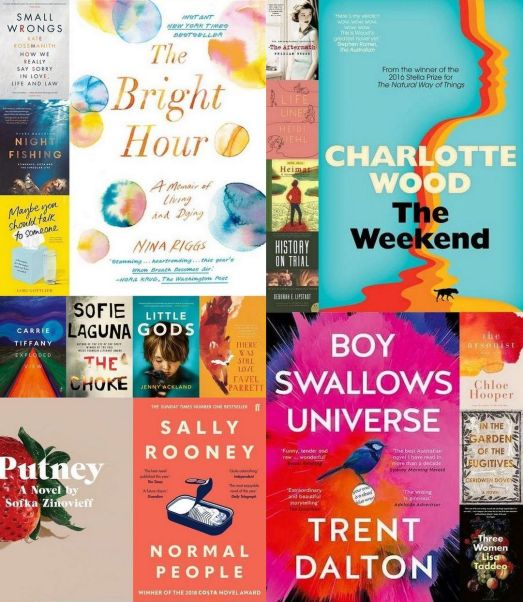
01. Yay! I scored Taylor Swift tickets. My daughter is beyond ecstatic. Continue reading


01. Yay! I scored Taylor Swift tickets. My daughter is beyond ecstatic. Continue reading
Amani Haydar suffered the unimaginable when she lost her mother in a brutal act of domestic violence perpetrated by her father. Haydar was five months pregnant at the time, and her own perception of how she wanted to mother (and how she had been mothered) was shaped by the murder. In The Mother Wound, Haydar reflects on her parents’ marriage, her family’s history, and the social and cultural context in which she grew up.
We couldn’t call it ‘the night Mum died’ because she didn’t just drop dead. All of the available words betrayed reality.
What was most striking about this memoir, was Haydar’s clear account of her childhood, when she ‘…hadn’t yet found the language of abuse…’ but understood her parents’ relationship was bound by cultural, religious and personal complexities that she didn’t fully understand –
It is hard to spot a red flag in a man who is simply doing what everyone else is doing. Continue reading

An even spread of excellent books and some truly memorable author events has made 2019 a terrific reading year.
As I’ve done in previous years, I’ll focus on the books that have continued to resonate with me (as opposed to those I gave five stars to as soon as I’d finished reading). Continue reading
It’s Nonfiction November, this week hosted by Sarah’s Bookshelves. The task? Pair up a nonfiction book with a fiction title.
I have so much fun with this topic (past post, and here), and other bloggers’ book-pairings have resulted in a lot of books being added to my TBR sack.

When relationships get messy, the band does not get back together – Bright Lights, Dark Shadows: The Real Story of ABBA by Carl Magnus Palm and Daisy Jones and The Six by Taylor Jenkins Reid. Continue reading

It’s time for Nonfiction November, starting with my ‘Year in Nonfiction’, hosted by Julz Reads.
Strictly speaking, I should call it Memoir November (Memvember?!) – doesn’t have quite the same ring but it is more accurate in my case, given that the majority of my nonfiction reading is memoir (specifically, I’ve read 16 memoirs, one biography and four other nonfiction titles this year).
 Seems trite to say the year is zipping by, but there you go, it is. Continue reading
Seems trite to say the year is zipping by, but there you go, it is. Continue reading

01. It makes me very happy to think that most of these kids (approximately 30,000 at the Melbourne Climate Change protest) will be voting within five years (pic above taken by my 16yo son. Pic below via Twitter).
There would be few Melbournians who cross the West Gate Bridge without a slightly heavy heart – the 1970 bridge collapse and the horrific tragedy of Darcey Freeman in 2009 weighs on us collectively. It is perhaps why Enza Gandolfo’s novel, The Bridge, resonates so deeply.
There are two stories in this book, linked by the Bridge. The first tells of 22-year-old Italian migrant Antonello, newly married and working as a rigger on the West Gate Bridge in 1970. When the Bridge collapses one October morning, killing 35 of his workmates, Antonello’s world crashes down on him.
Another jolt; the span was almost vertical now. A stiff-legged derrick loosed from its mooring catapulted toward the river, its long metal arms flaying violently, a giant possessed. And now the men: the men were falling, falling off, falling through the air and into the river below. They were screaming, but their cries were muffled by the bridge’s own deathly groans. Continue reading
When an author gets the balance between memoir and journalism* just right, it makes for brilliant reading. Kate Rossmanith has done it with Small Wrongs, a book that explores how we say ‘sorry’.
Rossmanith looks at what constitutes remorse from many angles – the ‘theatre’ of courtroom appearances; how judges make their decisions; prison, parole and rehabilitation and how these systems create opportunities for offenders to show remorse; and retribution for victims of crime.
In the justice system…the act of forgiveness was unrelated to the duty of punishment; it was not the role of the courts to forgive a person…only the victims can forgive. Continue reading

It’s time for #6degrees. Start at the same place as other wonderful readers, add six books, and see where you end up!
This month we begin with The Arsonist by Chloe Hooper. It’s a fascinating account of the 2009 Black Saturday bushfires. One of the themes Hooper explores is remorse. Continue reading